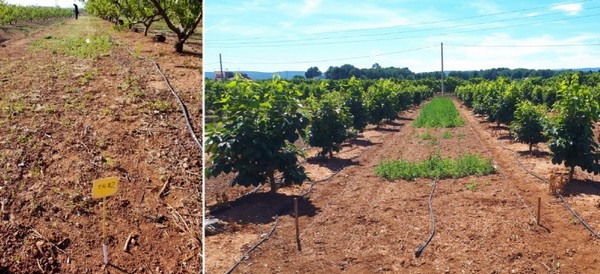Seipasa, a Spanish company specialized in the development and formulation of biopesticides, biostimulants and fertilizers for agriculture, and the Mediterranean Agroforestry Institute (IAM) of the Polytechnic University of Valencia are working on the development of a new natural herbicide.
The goal of this project is to develop an effective and sustainable alternative to synthetic herbicides. Its use would help reduce the environmental impact of chemical herbicides and prevent the appearance of resistances caused by the abusive use of current solutions.
 One of the plots where tests are being carried out
One of the plots where tests are being carried out
According to IAM researcher Mercedes Verdeguer, the project was born from the need of providing new tools to producers. “The sector has long called for new solutions for weed control that are more environmentally-friendly. In 2009, there was a change in European legislation that aimed for a more sustainable use of plant protection products and tried to promote strategies for integrated pest management,” she says.
"Since that time, active materials have been constantly disappearing, so it is more necessary than ever to have new tools for integrated management," said the IAM researcher.
Marta Muñoz, Seipasa product specialist and member of the IAM, stressed the importance of developing new alternatives in a scenario like the current one, as “the amount of problems caused by the appearance of resistances is on the rise, but producers have fewer and fewer active matters at their disposal due to the stricter regulations.”
Muñoz also recalled the rising consumer demand for residue-free fruits and vegetables and stressed that this new herbicide will help make our diets healthier.
Seipasa and IAM are currently conducting trials under controlled conditions in order to evaluate the effectiveness of this new product against different types of weeds, such as Erigeron bonariensis (also Conyza bonariensis), Amaranthus retroflexus and Avena fatua. The first results when it comes to speed of action, effectiveness and absence of residues in the final production have been positive.
The most significant advances made in the project have recently been published in the scientific journals Agronomy and Molecules.
Besides this project, Seipasa and the Polytechnic University of Valencia are working together on other lines of research with the aim of generating new tools in integrated pest management.
 For more information:
For more information:
Seipasa
C/ Ciudad Darío, naves 1-3-5, 46250 Pol. Ind. La Creu L’Alcudia, Valencia. Spain
Tel.: +34 962 541 163
www.seipasa.com
